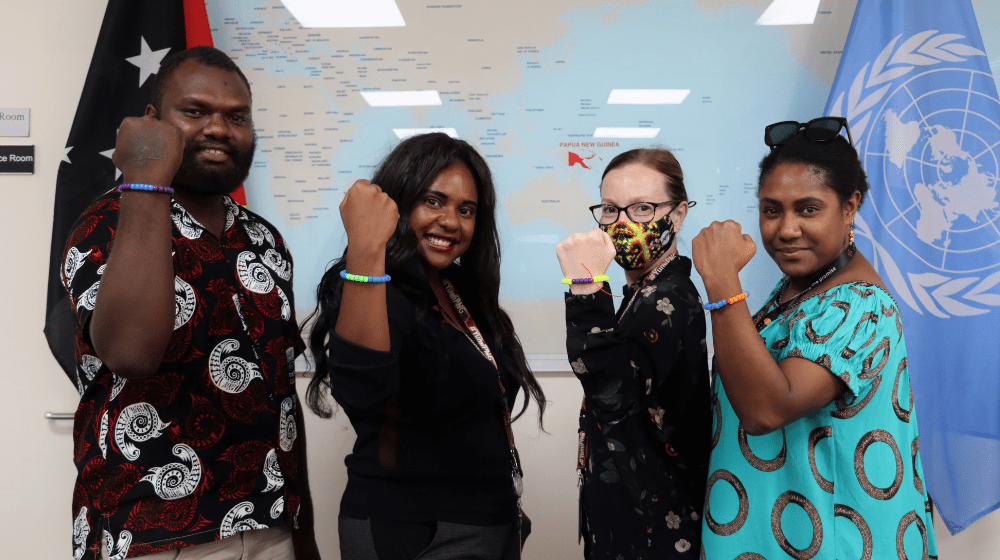“Missing 5 days of school every month ends in missing education opportunities, economic opportunities as well and other issues such as marrying young and unplanned teenage pregnancies,” said UNFPA Young Ambassador Bronwyn Kili ahead of World Menstrual Hygiene Day.
Cultural beliefs and customs in Papua New Guinea most times dictate the way menstruation is seen in the country - as a taboo and ‘hush’ topic - that most families do not address and adolescents are too embarrassed to discuss. This leads to menstrual health related stigma and exacerbates ‘period poverty’: the inability to access proper sanitary products and having poor knowledge of menstruation, which can lead to poor menstruation hygiene.
For this year’s World Menstrual Hygiene Day, UNFPA in partnership with UNCDF, UNICEF and youth networks, hosted a series of Menstrual Hygiene Day dialogues on Facebook Live to encourage conversations and raise awareness on period poverty and menstrual hygiene. An accompanying menstruation bracelet activity is encouraging solidarity against period related stigma.
This menstruation bracelet is a global symbol created by the Menstrual Hygiene Day Secretariat with the aim of creating a world in which no woman or girl is held back because of her period, and where period is just a normal fact of life. The bracelet consists of 28 elements, five of the elements are red. 28 stands for the average length of the cycle, five for the average length of a period.
Bronwyn Kili said the organisation’s Menstrual Hygiene Day activities bracelet campaign aim to create a safe space where girls and women can talk about issues that affect them as a direct result of stigma surrounding menstrual hygiene and period poverty.
“What most people do not realize is that period poverty can affect girls and women’s education. When they do not have access to sanitary pads during menstruation,” said Miss Kili.
“Schools must have period friendly toilets and environment, prioritizing sanitary pads and overall women's health. Also raising awareness on menstrual hygiene related health problems, that are the direct effect of unsafe and unhealthy management of periods.”
Our culture has created a gray area when it comes to menstruation and girls are raised not freely expressing their needs when it comes to menstruation hygiene management. This year's World Menstrual Hygiene Day is about starting the conversation and raising awareness about menstrual hygiene management and women’s struggle with issues that come along with.
“There is no dialogue about period poverty and the need for action to address the issue and the way forward. In prioritizing women’s health, we need to raise awareness, call for action and also recognise the efforts of people who are in a way trying to eradicate period poverty.”
About Menstruation Hygiene Day
The day is observed on 28 May because menstrual cycles average 28 days in length and people menstruate an average of five days each month. (May is the fifth month of the year.) It is meant to advance menstruation as a biological process so that people can menstruate without being cast out or missing out, without feeling fear or shame and without being treated like less or exposed to more vulnerabilities. It also raises awareness of period poverty, or the inability to afford the menstrual supplies needed to manage health and hygiene with dignity.
Today May 28th, Menstrual Hygiene Day, UNFPA is putting the spotlight on the millions of women and girls for whom the most natural of reproductive cycle functions can equate to abuse, stigma, missed opportunity, and loss of dignity. This year, UNFPA’s specific focus is on the challenges of managing menstruation in an emergency context.


